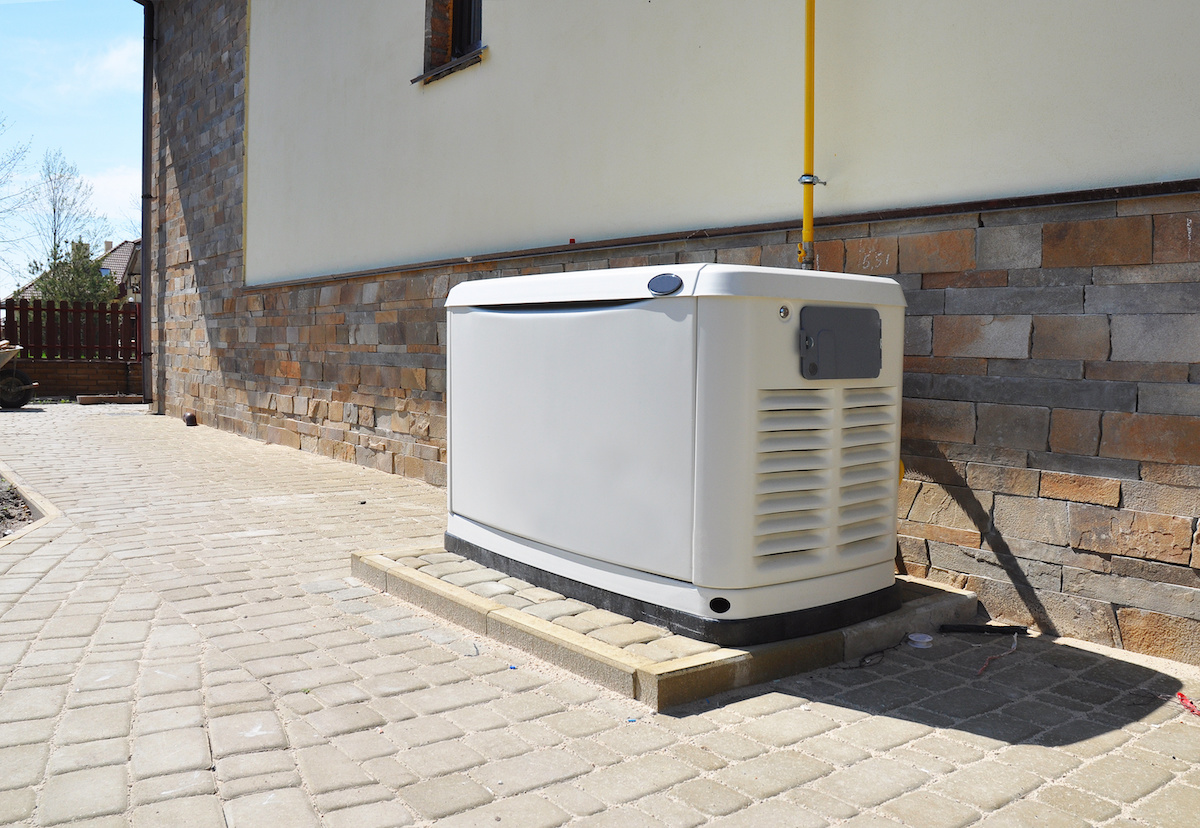
22 Dec Electric Generators: The Ultimate Guide
Introduction
Here in Houston, we say “you don’t miss your water till your well runs dry,” and that’s especially true for electricity. We often don’t realize the critical role electricity plays in our daily lives until it’s suddenly unavailable. Whether it’s in our homes, at our places of work, or during leisure activities, electricity is a silent, constant companion, powering everything from the smallest household appliance to the largest industrial machine.
Electric generators are the backbone of modern electricity supply. They step in to fill the void when the regular power grid fails us, ensuring that our lives continue with minimal disruption. This is particularly evident in scenarios where the grid cannot reach, such as remote locations, or during unexpected power outages, which can happen anywhere, at any time.
This guide aims to take you through the world of electric generators. We’ll explore the various types of generators available, each suited to different needs and circumstances. From the rugged, portable generators that can be a lifeline on a camping trip, to whole home standby generators and backup generators that protect homes and businesses during power outages, each type has its unique features and benefits. Whether you’re in Texas or beyond, understanding electric generators is a step towards self-reliance and resilience in our electrified world.
Disclaimer
This guide on electric generators is provided for informational purposes only and is intended to offer general guidance on the topic. While efforts have been made to ensure the accuracy and completeness of the information presented, the complexities and variations in generator models, installation processes, and local regulations mean that this guide cannot cover all possible scenarios and details. Readers are advised to consult with qualified professionals, particularly when it comes to installation, maintenance, and safety aspects of electric generators and to ensure compliance with all applicable laws, codes, and safety standards.
The information in this guide should not be used as a substitute for professional judgment or expert consultation. It is the responsibility of the reader to ensure that they are acting in accordance with local laws and regulations. The authors and publishers of this guide disclaim any liability for any loss, damage, injury, or expense that may arise from the use of the information provided. By using the information in this guide, the reader agrees to take full responsibility for their decisions and actions. Caution and due diligence are always recommended when dealing with electrical equipment and installations.
Remember, safety and compliance are paramount. When in doubt, always choose to consult with a professional.
Types of Electric Generators
1. Portable Generators
Portable generators are the epitome of flexibility and convenience in the world of electric generators. These units, often powered by gasoline, diesel, or propane, can be easily moved from place to place, making them ideal for a variety of applications. From powering tools at a construction site to providing electricity for camping trips or outdoor events, portable generators ensure that power is always within reach.
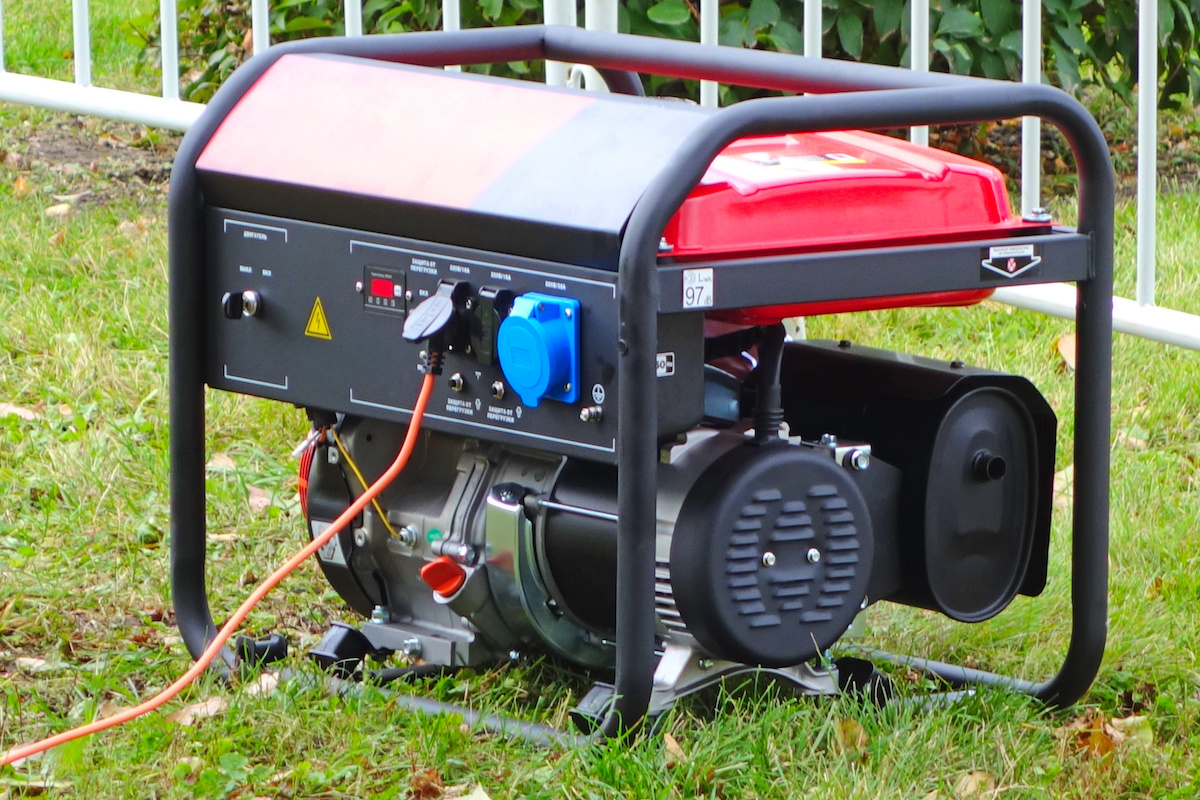
They come in various sizes, from small, lightweight models that can charge your devices to larger ones capable of powering major appliances. Key features include:
- Ease of Use: Generally equipped with simple controls and quick start features.
- Versatility: Able to power a range of devices, including lights, small appliances, and tools.
- Emergency Power Source: Invaluable during power outages for running essential appliances like refrigerators and air conditioners.
2. Standby Generators
Standby generators are the reliable watchdogs of uninterrupted power supply. These generators are installed permanently outside homes or businesses and are connected directly to the electrical panel.
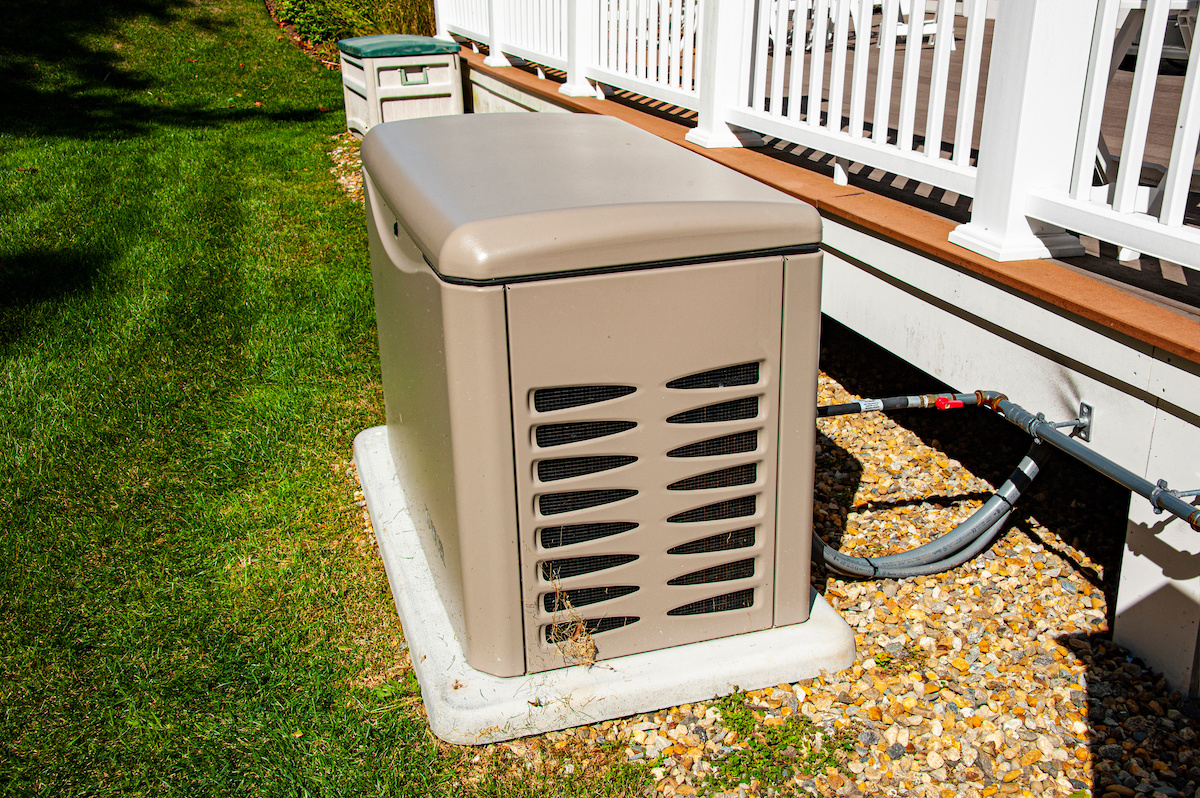
They operate automatically, detecting a power outage and kicking in within seconds to restore power. Often powered by natural gas or propane, these generators are designed to handle the entire electrical load of a house or a significant portion of a business. They’re particularly crucial in areas prone to severe weather events or frequent power outages. Standby generators offer:
- Automatic Operation: They start automatically during a power outage and shut down once the power returns.
- Higher Power Capacity: Capable of powering critical systems like heating, cooling, and security systems.
- Peace of Mind: For businesses, they ensure continuity of operations, and for homeowners, they offer comfort and security during power disruptions.
3. Inverter Generators
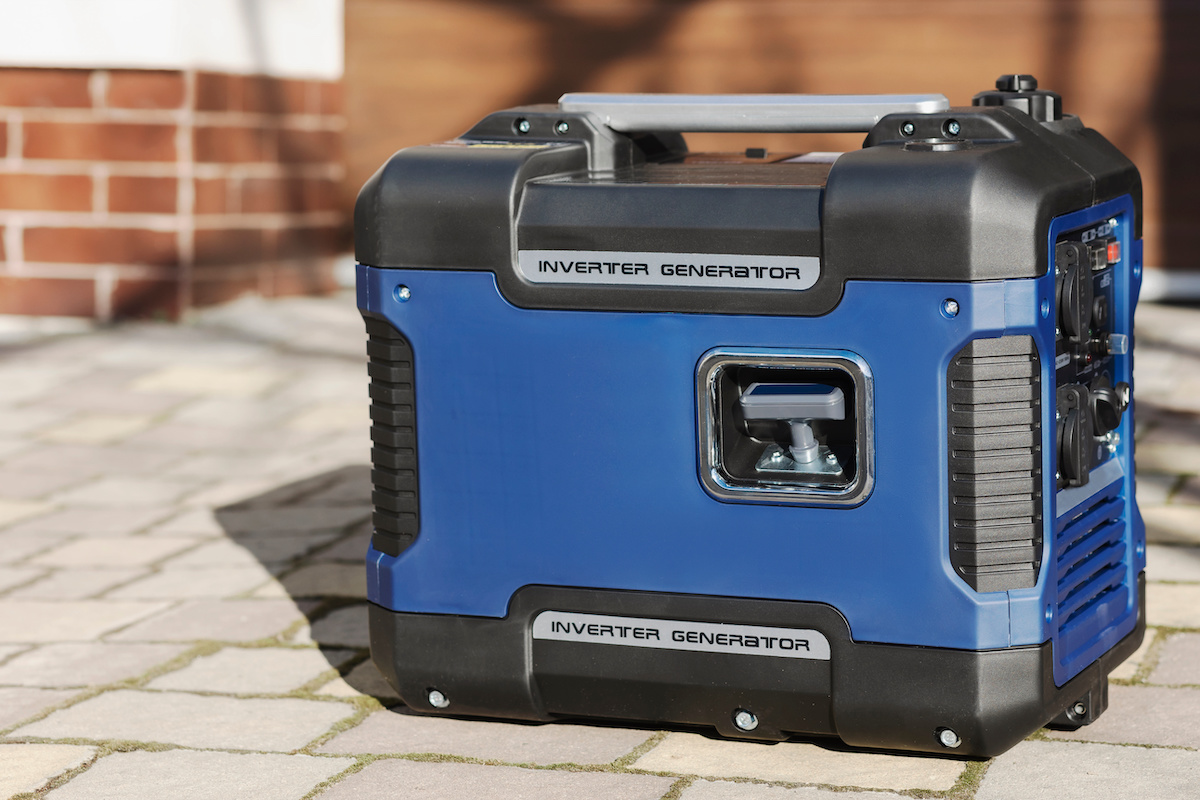
Inverter generators are a sophisticated and modern choice in the generator market. These units stand out for their efficiency, quieter operation, and the clean, stable power they produce, making them ideal for powering sensitive electronic devices like laptops, smartphones, and medical equipment.
Unlike conventional generators, inverter generators adjust their engine speed to the electrical demand, reducing fuel consumption and minimizing noise. They are perfect for recreational activities like camping or tailgating and are favored in residential areas where noise levels are a concern. Some are small and easy to move, like the one pictured above, while others are larger. Key advantages of inverter generators include:
- Energy Efficiency: Adjusts power output to the load, leading to fuel savings and reduced emissions.
- Low Noise Levels: Quieter than traditional generators, they are suitable for use in noise-sensitive environments.
- Clean Power Output: Produces stable and clean electricity, safe for sensitive electronics.
Each type of generator serves distinct needs and preferences, from portable convenience and standby reliability to the advanced technology of inverter generators. Understanding these types allows individuals and businesses to make informed decisions based on their specific power requirements, ensuring they’re never left in the dark.
Common Fuel Types
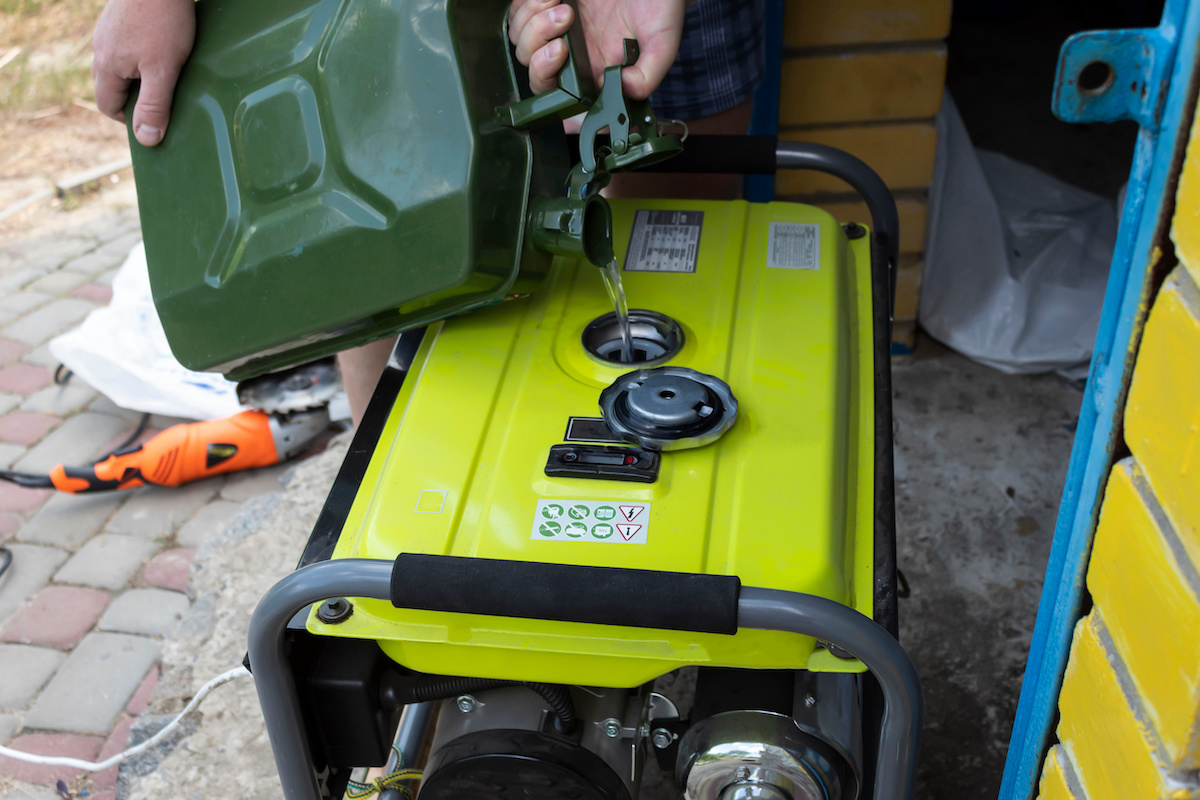
In Houston, we know our way around engines and fuel – after all, we’re not just the energy capital of the world for nothing. But let’s keep it simple; we’re not running a nuclear reactor here (they haven’t found a way to make those fit in the backyard yet, and let’s be honest, who wants their lawn glowing green?)
The fuel type of an electric generator greatly influences its efficiency, usability, and suitability for different applications – whether that’s ensuring a hospital’s operation during a Gulf Coast hurricane, or keeping the beers cold at the tailgate. Each fuel type comes with its pros and cons:
1. Gasoline
- Overview: Gasoline is the most commonly used fuel for portable generators due to its widespread availability.
- Advantages:
- Easy to obtain and store in small quantities.
- Generators running on gasoline are generally less expensive and lighter.
- Disadvantages:
- Short shelf-life; can degrade over time, especially if not treated with stabilizers.
- Highly flammable and requires careful storage.
- Not as efficient in terms of energy density compared to diesel.
2. Diesel
- Overview: Diesel is favored for its high energy efficiency and is often used in larger, industrial-grade generators.
- Advantages:
- Higher energy content than gasoline, leading to longer running times.
- Diesel engines are typically more robust and have a longer lifespan.
- Less flammable than gasoline, offering a safer storage option.
- Disadvantages:
- Generally more expensive upfront than gasoline generators.
- Diesel fuel can gel in cold temperatures, requiring additives in colder climates.
- Can be harder to source in emergency situations.
3. Propane
- Overview: Propane is a popular choice for both portable and standby generators, known for its clean-burning properties.
- Advantages:
- Burns cleaner than gasoline or diesel, resulting in fewer emissions.
- Has an indefinite shelf life and can be stored for long periods.
- Quieter operation compared to gasoline and diesel generators.
- Disadvantages:
- Lower energy density than diesel, leading to larger fuel tanks for equivalent energy.
- Propane tanks are bulky and require space for storage.
- Can be more expensive and less efficient in terms of fuel consumption.
4. Natural Gas
- Overview: Natural gas is primarily used in standby generators and is an efficient and clean-burning fuel.
- Advantages:
- Offers a continuous supply, as it’s usually piped directly from the municipal line.
- Cleaner burning than gasoline and diesel, resulting in lower emissions.
- Cost-effective and efficient for long-term use.
- Disadvantages:
- Installation can be complex and requires a connection to a natural gas line.
- Not portable; limited to fixed installations.
- In case of a natural disaster, supply lines can be disrupted.
5. Dual-Fuel / Hybrid
- Overview: Dual-fuel generators can operate on two different types of fuels, usually a combination of gasoline and propane or diesel and natural gas.
- Advantages:
- Versatility in fuel choice allows for flexibility in availability and cost.
- Ability to switch fuels can extend the running time and improve efficiency.
- Disadvantages:
- Can be more expensive than single-fuel generators.
- More complex systems that may require additional maintenance.
6. Bio-Diesel
- Overview: A less common but environmentally friendly option, bio-diesel is used in certain diesel generators.
- Advantages:
- Renewable and can be produced from vegetable oils or animal fats.
- Lower emissions compared to traditional diesel.
- Disadvantages:
- Availability can be limited.
- May require modifications to standard diesel engines.
7. Solar-Powered Generators
- Overview: Solar generators use solar panels to convert sunlight into electrical power, stored in batteries.
- Advantages:
- Eco-friendly, with no emissions.
- Silent operation and minimal maintenance.
- Disadvantages:
- Dependent on sunlight; less effective in cloudy or rainy conditions.
- Typically lower power output, more suitable for charging small devices or limited use.
The Bottom Line on Electric Generator Fuels
Choosing the right fuel type for an electric generator involves balancing factors like availability, efficiency, cost, and environmental impact. Each fuel type presents a unique set of benefits and challenges, making it crucial to consider the specific needs and circumstances of use.
Whether it’s the portability of gasoline and diesel, the cleanliness of propane and natural gas, the versatility of dual-fuel, the eco-friendliness of bio-diesel, or the sustainability of solar power, understanding these options ensures an informed decision for reliable and efficient power generation.
Electric Generator Installation Houston

In the world of electric generators, proper installation isn’t just a good practice; it’s the cornerstone of safety, efficiency, and longevity. Think of it as constructing a reliable infrastructure for your home or business. It’s like laying a strong foundation for a house – it needs to be done right. Much like how careful planning goes into building downtown Houston’s skyscrapers and sprawling highways. Just as these structures stand firm against the Gulf Coast weather, a well-installed generator stands resilient against power outages and emergencies.
The installation process of an electric generator is multifaceted and demands attention to detail. It’s not just about finding a spot and plugging in; it involves a series of technical and safety evaluations to ensure that your backup power kicks in seamlessly when needed, without any hitches.
From selecting the right location to ensuring compliance with local codes, professional installation is a wise choice. Skilled electricians and technicians bring not only their expertise but also an understanding of local considerations – from weather patterns to regulatory landscapes. They ensure that your generator is not just installed, but integrated into your home or business with the precision and care that such a critical component of your infrastructure deserves.
1. Selecting the Right Location
- Accessibility: Choose a location that is easily accessible for installation, maintenance, and fueling. It should be convenient yet safe.
- Safety and Ventilation: Ensure the location is well-ventilated and away from windows, doors, and vents to prevent carbon monoxide from entering the building.
- Noise Considerations: Generators can be noisy. Consider the impact on your living or working space and your neighbors.
- Environmental Factors: The location should be protected from flooding, high winds, and other environmental hazards.
2. Preparing the Site
- Foundation: Generators need a stable and level base. Concrete pads are commonly used to provide a firm foundation and to minimize vibrations.
- Drainage: Ensure proper drainage around the site to avoid water accumulation, which can lead to damage or operational issues.
3. Compliance with Local Codes and Regulations
- Permits: Check local building codes and obtain necessary permits before installation. This step is crucial to ensure legal compliance.
- Fuel Storage and Safety Codes: Adhere to regulations regarding fuel storage, electrical wiring, and safety measures.
4. Professional Installation
- Qualified Technicians: Hiring professionals ensures that the generator is installed correctly and safely. They have the expertise to handle electrical and fuel connections, exhaust systems, and more.
- Inspection: After installation, a thorough inspection by a qualified technician is essential to ensure everything is in order and functioning properly.
5. Electrical Connections
- Transfer Switch: Install a transfer switch to safely connect the generator to your home’s electrical system. This switch prevents back-feeding, which can be dangerous to utility workers and damage your electrical system.
- Load Management: It’s important to understand the generator’s capacity and manage the load accordingly to avoid overloading.
6. Fuel Supply and Storage
- Proper Fueling: Ensure an adequate and safe fuel supply, whether it’s gasoline, diesel, propane, or natural gas.
- Storage Safety: For generators not connected to a natural gas line, proper fuel storage is critical. Follow guidelines for safe storage of fuel to prevent accidents.
7. Testing and Commissioning
- Initial Testing: Run the generator to ensure it operates as expected. This is the time to check for any issues.
- Regular Testing: Schedule regular testing of the generator to ensure it remains in good working order, ready to function in case of an emergency.
The installation of an electric generator is not just a technical task, but also a strategic decision that involves safety, legal compliance, and practicality. Each step, from selecting the right location to the final testing, plays a crucial role in ensuring that the generator serves its purpose effectively and safely.
Remember, cutting corners in the installation process can lead to inefficiencies, safety hazards, and legal issues. Trusting professionals and adhering to guidelines is the best approach to guarantee a reliable power backup system for your needs.
Maintenance/Repair Tips for Electric Generators
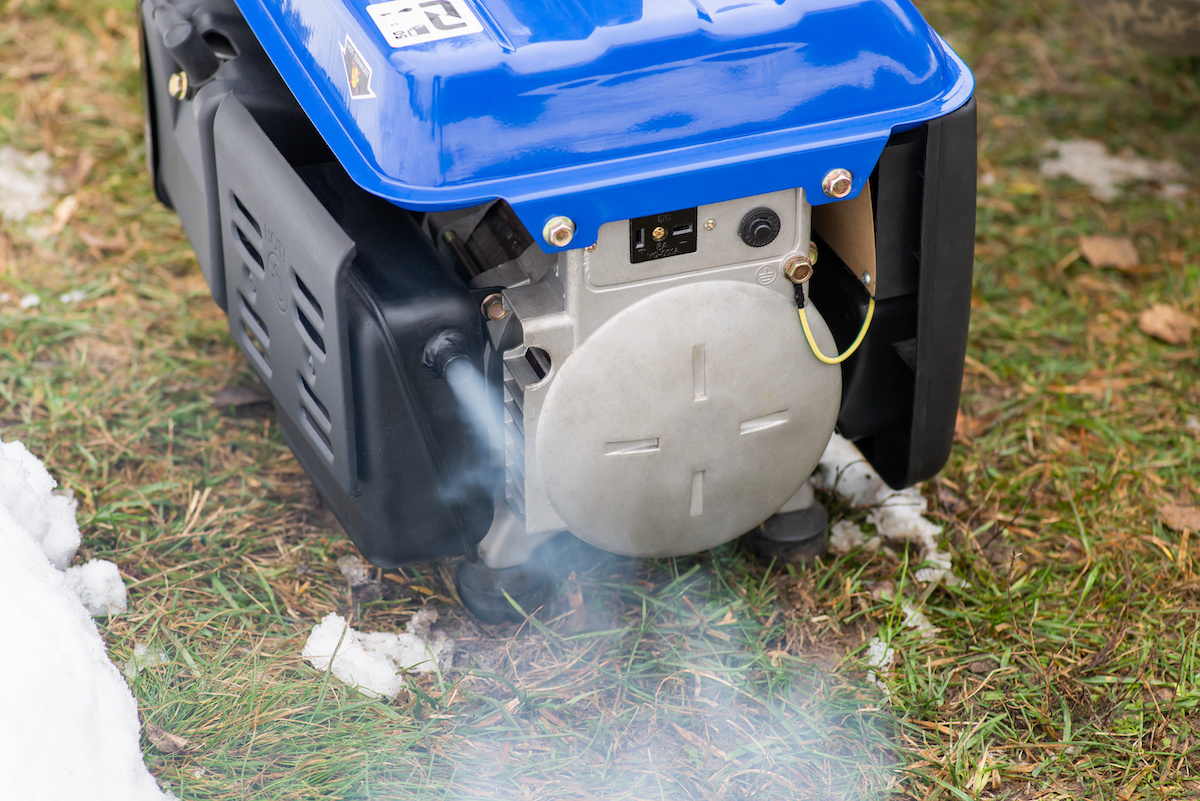
Proper maintenance is the key to ensuring your electric generator runs efficiently and lasts a long time. Just as regular maintenance is vital for your vehicle, your generator also needs consistent care to operate at its best.
Suggested Tips (When Applicable to Your Generator Type)
Regular Oil Changes
- Frequency: Check the manufacturer’s guidelines for how often to change the oil. Typically, after the first 20-30 hours of use and every 100 hours thereafter.
- Type of Oil: Use the type of oil recommended by the manufacturer, which may vary based on the operating environment.
Air Filter Replacement
- Inspection and Cleaning: Regularly inspect the air filter and clean it according to the manufacturer’s instructions.
- Replacement: Replace the air filter periodically to ensure optimal air flow and engine performance.
General Cleanliness
- Exterior Cleaning: Wipe down the exterior of the generator to prevent dirt and debris accumulation.
- Check for Leaks: Regularly inspect for fuel or oil leaks, as these can indicate a need for maintenance or repair.
- Storage: When not in use, store the generator in a clean, dry place.
Common Issues and Solutions
Even with regular maintenance, generators can experience issues. Here are some common problems and how to address them:
Difficulty Starting
- Possible Causes: Low oil levels, stale fuel, or a drained battery.
- Solutions: Check oil levels and refill if necessary. Replace stale fuel and ensure the battery is charged.
Overheating
- Possible Causes: Overloading the generator, poor ventilation, or a dirty air filter.
- Solutions: Reduce the load on the generator, ensure it’s in a well-ventilated area, and clean or replace the air filter.
Safety Guidelines
Safety is absolutely paramount when operating an electric generator. In fact, it’s important to remember that safety isn’t just a chapter in the manual; it’s the entire book. Here are some of the key safety guidelines to follow:
Proper Ventilation
- Installation: Ensure the generator is installed in a well-ventilated area to prevent potential carbon monoxide buildup.
- Operation: Never operate a generator indoors or in an enclosed space.
Regular Inspections
- Routine Checks: Regularly inspect your generator for any signs of wear, damage, or leaks.
- Professional Inspections: Have a professional inspect the generator annually.
Using Appropriate Accessories
- Extension Cords: Use heavy-duty, outdoor-rated extension cords free of cuts and tears.
- Transfer Switch: Use a transfer switch to safely connect the generator to your home’s electrical system.
Conclusion
As we wrap up this detailed exploration of electric generators, it’s worth taking a moment to reflect on what we’ve learned and how it impacts our relationship with these essential machines. This journey has been about more than just the nuts and bolts; it’s about recognizing how integral these devices are in our lives, often quietly and unobtrusively. Whether it’s preparing for the unexpected or ensuring the smooth running of our daily lives, the role of whole home electric generators in a city like Houston, Texas cannot be understated.

From homes to hospitals, outdoor events to critical business operations, these machines play a crucial role. Understanding the different types of generators and their specific applications gives us a newfound appreciation for the behind-the-scenes work that goes into keeping our world powered. The installation process, while technical, also brought to light the importance of thoughtful integration into our spaces. Electric generator maintenance, often overlooked, is a key aspect of responsible ownership. It’s a reminder that taking care of our tools and resources is an ongoing process, one that requires attention and diligence.
In closing, we hope this guide has illuminated the path to understanding electric generators and equipped you with the knowledge to make informed decisions. Here in Houston, and indeed anywhere, being informed and prepared is the key to not just enduring but thriving in our ever-evolving world.

